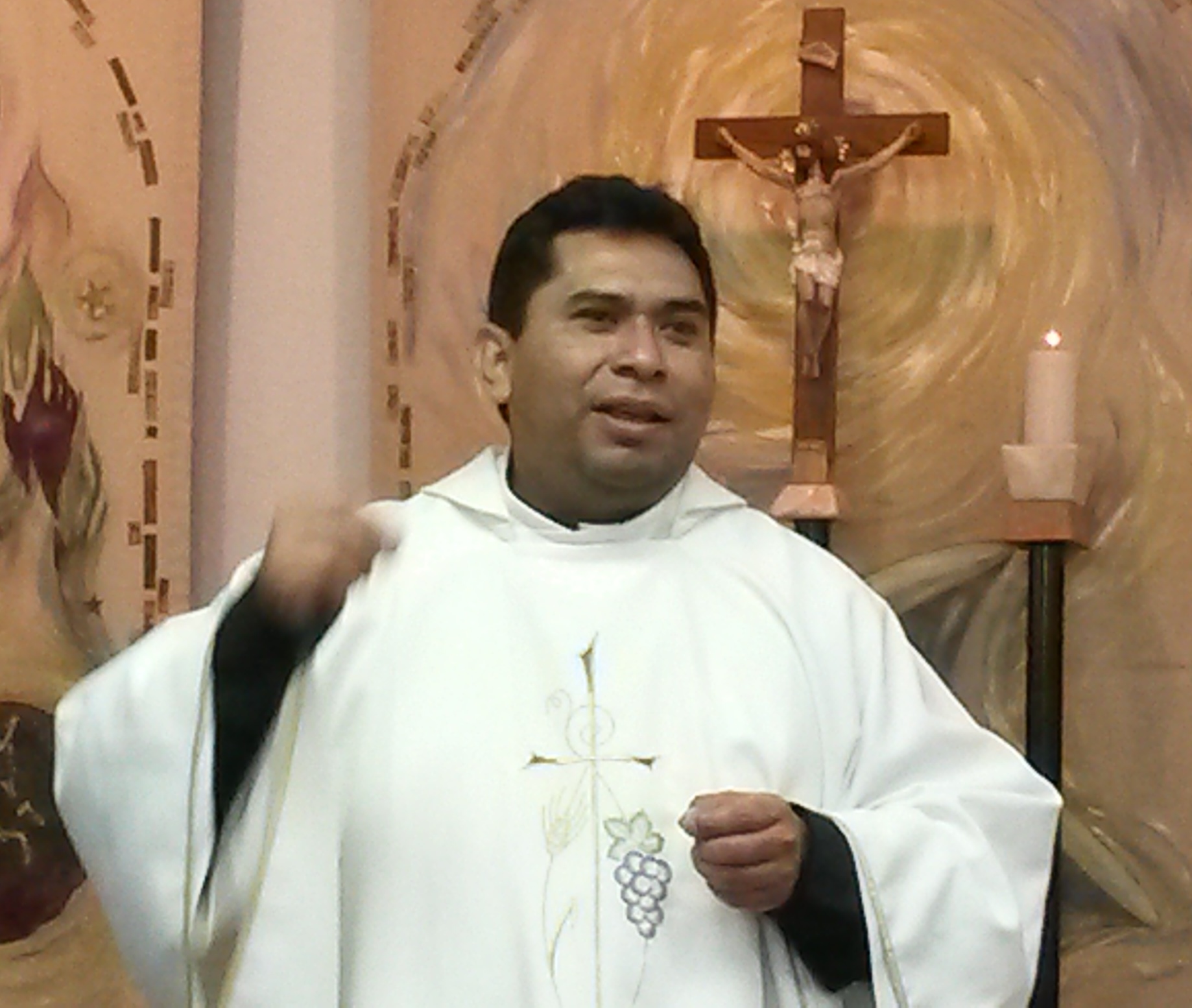
XXX SUNDAY IN ORDINARY TIME
JUSTIFICATION IS A DIVINE GIFT
By our Pastor, Fr. Carmelo Jiménez
We are in the Thirtieth Sunday in Ordinary Time, and our thoughts take us to reflect about the end of our life, which is going to question our faith and our way of life, as we prepare to meet God.
“The LORD is a God of justice, who knows no favorites.” (Sir 35: 12) God has been and will always be an unattainable model of justice and fairness, despite all appearances and judgments of men. It is true and it has been said that God has a preference for the poor, orphans and widows, but that does not mean he is not fair with the rich as well. We might ask what happens with evil and retribution, and I ask the familiar questions: Why are the rich and wicked people prospering and the poor people every day are getting worse? We turn to see Haiti, the poorest country and it seems that nature rages against them. What sense is in the suffering and evil in the world? Why are there so many inequalities and racism among men? Why do those who have more good things and strength, despise the weak and oppress and exploit them? If God acts always with impartiality, then what happens in the world? Sooner or later he will do justice to all. God’s justice is manifested in two directions: he never punishes more than he should; and that punishment will always be tempered by mercy. The poor and the weak are especially protected by God and his law. The promise of salvation is seen as leaning toward the poor, not because it is so, but because it is easier for them to remain firm in faith and hope in God. Many people, when they possess wealth (not only economic) lose sight that is everything is a gift of God and some of them hold their hearts to their property.
It was by God’s grace that I collaborated with Bishop Samuel Ruiz Garcia, who was bishop of San Cristobal de las Casas. He was one of those who took up the banner in his pastoral work of liberation theology. All his pastoral care was an exceptional preferential option for the poor. He learned to speak various languages of Mayan descendants because he wanted to communicate directly with his faithful and not only use translators who said only what was good for them to know. It is true that he always he defended the poor and those who have less. He was seeking the progress of peoples and encouraged his priests to seek the welfare of their parish communities. Many parishes established schools with only promoters of education, they were not teachers, but had the hope that the people would learn. For all these actions, the rich and powerful rejected him, and even some bishops did not support him in his ministry. But if someone asked about Tatic Samuel, a lot of people know him and talk about him, because he never abandoned his people. Even Pope Francis went to his grave and prayed. If that happened with a bishop, do you think God would abandon anyone who invokes him?
“I tell you, the latter went home justified (the publican), not the former(the Pharisee); for whoever exalts himself will be humbled, and the one who humbles himself will be exalted.” (Luke 18:14) Could the Pharisee have made a better prayer? Yes, because his behavior seems unimpeachable. But he did not have the main thing: he did not experience the gratuitousness of God. In the bottom of his heart he did not know this God to whom he prayed and worshiped. He never discovered the true face of God. His heart was hard and never saw the divine mercy. The tax collector stayed away, hidden, embarrassed, afraid of being discovered by others. He just prayed with the Psalm that David wrote when he discovered his fault, his serious offense before God. The tax collector prays with Psalm 51: “Have mercy on me, God, in your kindness; in your abundant compassion blot out my offense…a contrite, humbled heart, O God, you will not scorn.” The tax collector can only offer God a broken life, a sincere recognition and a humble, contrite heart.
God acts by forgiving the tax collector, just like he did with the prodigal son, just like he did with the adulterous woman, just like he did with Zacchaeus, just like he did with Peter after his betrayal, just like he did with Ignatius of Loyola, just like he does with me and with each one of you. God is a Father who is full of mercy and always willing to forgive. Justification is not made through good actions, but rather is a freely given gift from God. Those who receive it open themselves to his grace and mercy.
May we always be able to recognize divine kindness, gratuity and mercy in our lives and may we live according to the will of God our Father. Amen.